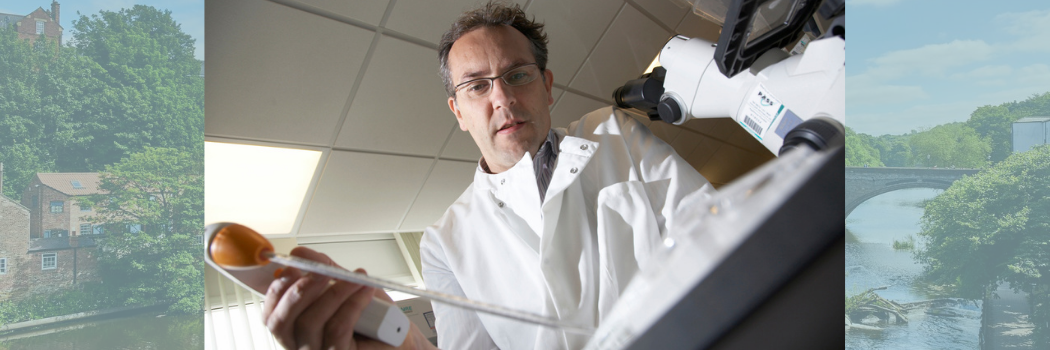3D cell tech improves drug testing and reduces animal research

Our award-winning bioscientists have developed innovative 3D cell culture technology so scientists can grow realistic human tissues for more effective drug testing while reducing the need for animal research. Alvetex® is a highly porous polystyrene scaffold designed to support the growth of human tissues from cells cultured in the laboratory – such as skin and intestinal tissue - that closely resemble those found in the body.
Commercialisation of Award-Winning Technology
Originally developed in our labs, this innovation saw lead researcher Professor Stefan Przyborski receive the prestigious Royal Society of Chemistry award in recognition of the research and its commercialisation.
Alvetex® technology has already surpassed global sales of over £1 million – and has even been used in experiments on the International Space Station to investigate bone loss during bed rest, in microgravity or through diseases such as osteoporosis.
It was first commercialised by Durham University spin-out company Reinnervate based at NetPark in County Durham.
In 2014 it was bought by Japanese firm Reprocell and renamed Reprocell Europe Ltd following its merger with human tissue specialist Biopta.
Modelling human tissue
Recent research has focused on the application of this technology to produce more sophisticated bioengineered 3D models of human tissues, incorporating multiple cell types.
Alvetex® has also been used by leading corporations such as Procter & Gamble, which is employing the technology in its skin research programme and the development of new consumer skincare products.
AstraZeneca are partnering with Durham and Reprocell Europe to develop a unique tissue model of the human nasal mucosa using Alvetex® to test the application of nebulisers for the non-invasive delivery of vaccines against influenza and Covid-19.
And because the technology produces realistic tissue samples for use in experiments, like the testing of new drugs, it means scientists can reduce the number of animals used in research.
Find out more
- Find out more about the Alvetex® technology
- Learn more about the work of Professor Stefan Przyborski
- Read the published papers on bioengineering novel in vitro co-culture models, bioengineering the microanatomy of human skin and a novel fully humanised 3D skin
- Interested in studying at Durham? Explore undergraduate and postgraduate courses in our Department of Biosciences


/prod01/prodbucket01/media/durham-university/external-location-photography-/city-shots-/82922-1-1920X290.jpg)